 Workers Compensation Insurance for interstate trucking companies can be complicated, but it is required by most states. And, due to the dangerous nature of truck driving, it is essential for the well-being of both truck drivers and trucking companies.
Workers Compensation Insurance for interstate trucking companies can be complicated, but it is required by most states. And, due to the dangerous nature of truck driving, it is essential for the well-being of both truck drivers and trucking companies.
Determining Workers Compensation Insurance Risks
The first challenge comes when insurance underwriters try to determine a trucking company’s risks. Each state has its own workers comp insurance base rates, requirements, and rules. To further complicate matters, sometimes a trucking company is located in one state, the truck driver resides in another, and the WC injury occurs in yet another state. While there are interstate payroll classification codes available from the National Council on Compensation Insurance (NCCI), those codes don’t apply to three highly-traveled states: California, New York, and Texas.
The 7th Deadliest Occupation
Another challenge is the dangerous nature of the occupation. With all the time truck drivers spend on the road, it’s probably no surprise that the Bureau of Labor Statistics lists truck driving as the seventh deadliest occupation. In 2016, there were 918 fatal injuries making the fatal injury rate for truck drivers 24.7 per 100,000 full-time employees.
Health and Injuries
What may surprise you is that truck drivers also tend to be less healthy than the average worker, which makes them more prone to other types of injuries. Drivers sit for long periods of time and then have brief periods of strenuous labor as they load and unload their trucks. Many truck drivers also have unhealthy lifestyles that include a minimal amount of exercise, being overweight, and having irregular sleep habits. This causes a disproportionate number of musculoskeletal injuries compared to other occupations and poor overall physical health that often impacts employee recovery time when they are injured.
The most common injuries truck drivers experience are vehicle accidents, slips and falls climbing in and out of the cab or trailer and on loading docks, trains, and back injuries while loading and unloading cargo, carpal tunnel, and crush injuries caused by loads falling on the driver. Many truck drivers also attribute kidney stones and hemorrhoids to their jobs but rarely claim either as an occupational injury or disease.
Despite its complexities, here are 3 ways trucking companies can save on workers’ compensation insurance:
-
Develop a Safety Program
Take the time to develop a comprehensive safety program specific to your business and give a copy of your safety policies to every truck driver along with safety guidelines specific to eliminating injuries in drivers. Also, create a culture of safety by making it clear that every driver is expected to follow your safety policies or face the consequences and requiring every driver to attend at least one annual safety training to reinforce your safety policies.
-
Perform Drug Testing
Drug testing will not only affect your workers compensation insurance costs but also your liability insurance costs. You should test every new hire and conduct random drug testing and mandatory drug testing after an accident that causes damage to property or injury to the driver or anyone else.
-
Health & Wellness Program
An effective health and wellness program may reduce the cost of both WC and health insurance benefits. These programs can help reduce injuries and help employees recover more quickly from injuries. This may seem like an unnecessary expense, but the WC savings you could experience just by reducing obesity alone will pay for the cost of the health and wellness program.
CAUTION - Don't Misclassify Drivers!
It’s very tempting to try to reduce your workers comp insurance costs by classifying all of your drivers as independent contractors, but the only drivers who should be classified as independent contractors are those who regularly drive for other companies. If the driver is only driving for your company and you’re designating when and where the loads are picked up and dropped off, the IRS and the state board of workers’ compensation will consider them your employees – not independent contractors.
The penalties and fines that you can face for not having WC for employees could quickly put a small or medium-sized trucking company out of business. Plus, drivers whose WC claims are denied can (and often do) sue your company for medical bills, pain and suffering (which is not paid under WC), and the loss of all wages (as opposed to the typical two-thirds of wages paid by most WC claims).
Get the Right Workers Comp Insurance for Your Business
While workers compensation insurance for trucking companies can be complicated, the WC experts at American Insuring Group can provide affordable and reliable workers compensation to protect both your employees and your business.
Don't take chances - call us at (800) 947-1270 or (610) 775-3848, or contact us online.



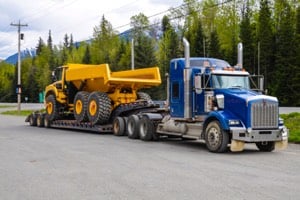 If you are one of the 12 million drivers registered to operate a CMV (Commercial Motor Vehicle) in the U.S., you play a big part in keeping our highways safe – even more so than drivers of passenger vehicles.
If you are one of the 12 million drivers registered to operate a CMV (Commercial Motor Vehicle) in the U.S., you play a big part in keeping our highways safe – even more so than drivers of passenger vehicles.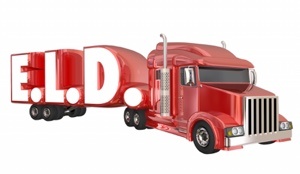 American Insuring Group has teamed up with Progressive Insurance to help commercial trucking companies comply with the new Electronic Logging Device (ELD) mandate.
American Insuring Group has teamed up with Progressive Insurance to help commercial trucking companies comply with the new Electronic Logging Device (ELD) mandate.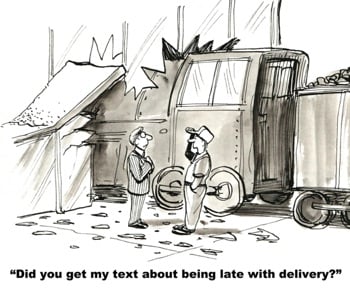 If you’re a CMV (Commercial Motor Vehicle) driver, you’ve probably heard of a little federal agency called the Federal Motor Carrier Safety Administration (FMCSA).
If you’re a CMV (Commercial Motor Vehicle) driver, you’ve probably heard of a little federal agency called the Federal Motor Carrier Safety Administration (FMCSA).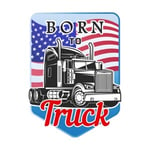 Give American Insuring Group a call at
Give American Insuring Group a call at 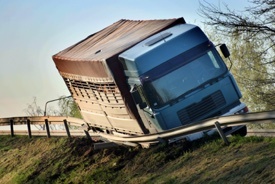 Now, what would happen if your truck was damaged, stolen, or totaled in an accident? Would you have enough money to cover the repairs or replace the truck? What would it mean to your livelihood?
Now, what would happen if your truck was damaged, stolen, or totaled in an accident? Would you have enough money to cover the repairs or replace the truck? What would it mean to your livelihood?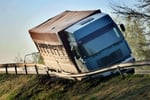 Protect your truck and your livelihood with physical damage insurance by giving American Insuring Group a call at
Protect your truck and your livelihood with physical damage insurance by giving American Insuring Group a call at  If you own a food transporatation business, then you need to understand government regulations that can affect your trucking insurance needs and that you
If you own a food transporatation business, then you need to understand government regulations that can affect your trucking insurance needs and that you  FSMA is just one government-imposed regulation that can affect your business, so it’s important that you have the right type of trucking insurance to cover your unique needs.
FSMA is just one government-imposed regulation that can affect your business, so it’s important that you have the right type of trucking insurance to cover your unique needs. Do you ever wonder how
Do you ever wonder how  Regardless of where the trucking industry goes in terms of driverless trucks, you can trust Amercican Insuring Group to provide smart insurance protection at a great price.
Regardless of where the trucking industry goes in terms of driverless trucks, you can trust Amercican Insuring Group to provide smart insurance protection at a great price.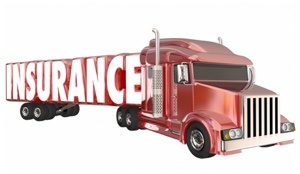 The United States economy depends on trucks to deliver nearly
The United States economy depends on trucks to deliver nearly  If you have questions about these filings or are looking for a great deal on any type of trucking insurance,
If you have questions about these filings or are looking for a great deal on any type of trucking insurance, 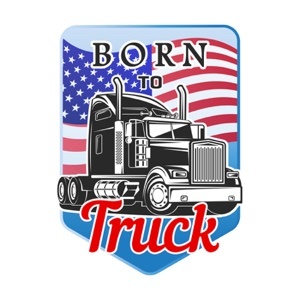 You invested a lot of money to start your own for-hire trucking business. Now it’s beginning to pay off as your schedule fills and you are spending more time on the road.
You invested a lot of money to start your own for-hire trucking business. Now it’s beginning to pay off as your schedule fills and you are spending more time on the road.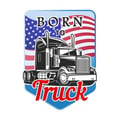 Signing on with a reputable motor carrier can mitigate some of those insurance expenses, but whether you drive under permanent lease or your own authority, you will need to sit down with an expert on for-hire trucking insurance to help you get the best coverage at a competitive price.
Signing on with a reputable motor carrier can mitigate some of those insurance expenses, but whether you drive under permanent lease or your own authority, you will need to sit down with an expert on for-hire trucking insurance to help you get the best coverage at a competitive price. Obviously, falling asleep at the wheel is dangerous, but did you know that driving while you’re drowsy (even if you don’t fall asleep) can be just as dangerous.
Obviously, falling asleep at the wheel is dangerous, but did you know that driving while you’re drowsy (even if you don’t fall asleep) can be just as dangerous.




